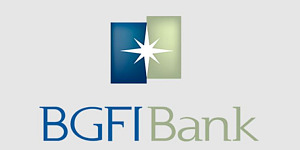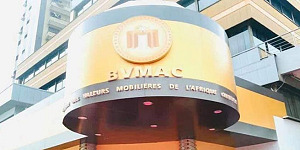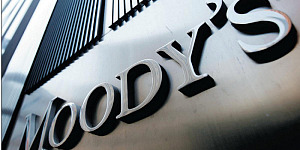Fitch Ratings has upgraded Gabon's Long-Term Foreign-Currency (LTFC) Issuer Default Rating (IDR) to 'B-' from 'CCC'. The Outlook is Stable.
A full list of rating actions is provided below.
Key Rating Drivers
The upgrade reflects a recent easing in liquidity pressures on the back of higher oil prices and a new IMF programme. It also reflects our expectation that Gabon's underlying fiscal position will improve due to a rebound in non-oil revenues, a reduction in pandemic-related spending and restraint in other current expenditures.
The rating also factors in Gabon's high GDP per capita relative to peers', longer-term uncertainties around oil production capacity, recurring difficulties in securing external funding and poor public-finance management.
Fitch expects the fiscal deficit on a cash basis to widen to 3.3% of GDP in 2021 from 2.5% in 2020, which captures the impact that lower oil production will have on fiscal revenues, a moderate increase in capital spending, and budgeted pandemic-related spending of 0.7% of GDP. We anticipate non-oil revenues will pick up this year, as external demand recovers and the easing of pandemic-related restrictions improves domestic activity. With the full recovery of economic activity and curtailment of Covid 19-related spending, we forecast the budget deficit will narrow to 1.4% in 2022 and 0.7% in 2023, below our forecast for the 'B' median of 7.4%.
We project oil production to contract by 14% and average 185 thousand barrels per day in 2021, after a modest 1.2% contraction in 2020. This reflects partial compliance with OPEC cuts, of which Gabon is a member, and high levels of production in early 2020. We forecast production to progressively recover to 210 thousand barrels per day by 2023, but expected moderation of Brent oil prices to USD53/b by 2023 will lead to a continued reduction of oil revenues.
We see uncertainties about Gabon's potential oil production level. Many of its fields are aging with diminishing returns and most reserves are situated in deep-offshore or mangrove with high break-even prices compared with international competitors'. Investment has been hampered by uncertainties about the ability of oil operators to continue holding foreign-currency accounts abroad. Gabon's 12th oil bidding round opened in 2018 and has suffered multiple delays, despite the revision of the oil law in 2019.
Fitch estimates Gabon's total funding needs at 14% of GDP in 2021 and 7% in 2022. Our estimates include the planned early amortisation of the country's Eurobond coming due in 2022-2024 via a new issue, with part of the proceeds to be used for budget financing. The regional central bank's bond- buying programme, which ends in August 2021, and other measures supporting bank liquidity had a temporary positive impact on the government's ability to raise funds on the regional market, and net domestic funding will cover close to 40% of the deficit in 2021. We expect net domestic funding to be negative from 2022 onward.
Fitch estimates fiscal funding from external sources, after the Eurobond refinancing, at about 4% of GDP in 2021 and 5% in 2022. This will comprise IMF disbursements and official project loans. Successful execution of the planned refinancing would smooth the country's repayment profile and reduce liquidity risks over the medium term. Gabon entered into a new extended fund facility of USD553 million with the IMF in July 2021, providing close to 2% of GDP in funding over 2021-2023, which is likely to serve as a catalyst for further official support.
We believe the IMF programme will remain focused on tax mobilisation, including the removal of tax exemptions, and governance and transparency reforms. Gabon's performance under the previous IMF programme with similar objectives was mixed, but many key reforms are now being front-loaded and will not coincide with the next presidential election in 2023. Nonetheless, delays in meeting the programme's objectives would introduce risks to Gabon's funding path and could result in renewed liquidity stress in light of the country's low liquidity buffers. The financing path also remains highly vulnerable to fluctuations in oil revenues.
The pandemic, oil price shocks and a failure to secure some planned funding from official creditors have led to a weakening of Gabon's liquidity position. The country was unable to secure several budget support loans expected in 2020, which highlighted weaknesses in public-finance management and limited the sovereign's financing flexibility. Tighter liquidity conditions resulted in temporary accumulation of external debt arrears in 2020, though these were cleared as of August 2021. It also led to a re-profiling of Gabon's Afreximbank loan, the second in as many years. The central bank's bond- purchasing programme provided some relief with additional liquidity in the shallow regional debt market, and the authorities raised about 2% of GDP from the regional central bank.
Fitch expects gross general government debt will fall to 74.4% of GDP in 2021, down from 77.4% in 2020. Our baseline assumption of modest fiscal deficits and an improving macroeconomic backdrop point to government debt falling to 73.8% by end-2022, slightly above the 'B' median of 70.5%. A task force is evaluating the validity of XAF440 billion (4.6% of GDP) of domestic arrears to suppliers, which could result in a modest downward revision to our debt figures. Fitch views Gabon's sovereign debt burden as sustainable, with risks to debt repayment capacity reflecting the liquidity and public-finance management challenges outlined above.
About 37% of Gabon's total government debt burden is on concessional terms, below the 2019 'B' category median of 69%, and reflecting the country's upper-middle income status. About 24% of its debt is in the form of Eurobonds and a small amount consisting of commercial loans. The central bank holds about 9% of Gabon's debt, comprising 7% in the form of long-standing advances that Gabon has flexibility to repay and 2% in government bonds. The remainder is domestic debt in the form of bank loans and regional market issuance.
We project GDP to contract by 0.3% in 2021, after a fall of 1.8% in 2020. The forecast assumes a decline in oil production, balanced with our expectation that the non-oil sector will rebound by 2.7%. Over the medium term, we expect non-oil growth will reach about 3.5%, below our headline growth forecast for the 'B' median of about 5% in 2022. Gabon will continue to pursue its strategy of economic diversification, largely focused on low value-added sectors, including mining, agrobusiness and forestry in addition to services. We also believe growth will be supported by continued government investment in infrastructure and through public-private partnerships, including in the energy sector and transportation with the Transgabonnaise highway.
We expect the current account deficit will moderate to 4% of GDP by 2023, from 6% in 2020, reflecting oil price and production dynamics, as well as a gradual diversification of the country's export receipts. CEMAC's pooled international reserves stood at USD7.8 billion at end-2020 (3.1 months of regional import coverage), which we expect will improve moderately over the next three years with a continued flow of concessional funding into the region and the IMF's special drawing-rights allocation that took place in August 2021.
ESG - Governance:
Gabon has an ESG Relevance Score (RS) of '5' for both Political Stability and Rights and for the Rule of Law, Institutional and Regulatory Quality and Control of Corruption, as is the case for all sovereigns. These scores reflect the high weight that the World Bank Governance Indicators (WBGI) have in our proprietary Sovereign Rating Model (SRM). Gabon has a low WBGI ranking at the 23rd percentile, relatively weak rights for participation in the political process, weak institutional capacity, uneven application of the rule of law and a high level of corruption.







































